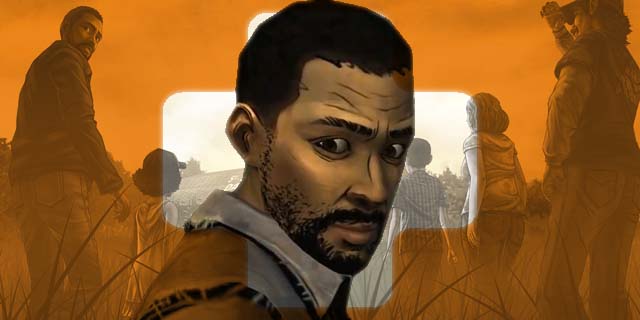
If you’ve been reading this column for a while, it’s painfully obvious how much I care about player agency in games. From meaningful gameplay choices to moral choices (especially those that don’t just skew black and white), I’m all about games that allow the player to insert themselves (or some part of themselves) into the experience. Whether it’s creating a character or simply choosing between blue and red during pivotal story scenes, I find our implementation of choices to be one of the coolest things the gaming industry has focused more on in the past five or so years.
Despite this, very few games have actually handled player choice as carefully as Telltale’s The Walking Dead. The major complaint many tend to use against the game’s narrative and choice system? Your choices don’t matter. This is the most misinformed criticism of The Walking Dead and of moral choices in games I have ever seen, and it demonstrates just how easily some can miss the point. In some sense, I do get why certain people would take that stance if they simply didn’t get attached to that game. However, there are many who did and, despite that, find reason to fault the game for the one thing it does best.
(Don’t worry if you haven’t played The Walking Dead yet; I won’t be spoiling anything here.)
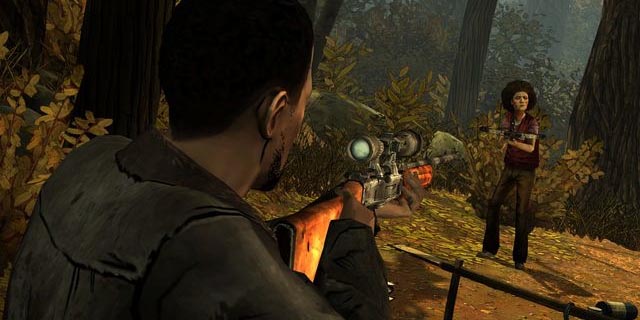
In this age of achievements and instant gratification, it can be easy to see why some people find this frustrating. If it doesn’t add up to some point total or reflect in every possible way by the end of the game, then it’s not worth it. I don’t mean everyone who loves achievements will feel the same, but there are enough people out there who can’t accept that sometimes choices can be impactful in different ways. You don’t always need hundreds of potential endings or ending variations to be satisfied by your decisions in a game. Maybe some do, but those people are missing the point when they criticize The Walking Dead for simply handling player choice better than most. Yes, that includes Mass Effect.
This is simply due to the fact that when you make a choice in The Walking Dead, whether it impacts the game’s conclusion or even the next episode, it matters to you. Whether you choose to side with one character or another during a single argument in Episode Two won’t entirely impact what plays out during Episode Five, no, but during that moment it might impact you as a player. If something shocking happens, you will feel responsible, even if you may have had no control over it. If you pick a choice that leads to a grim consequence, you will be impacted by that, not just as a player, but how you see the main character, Lee, and how he fits into this post-apocalyptic world.
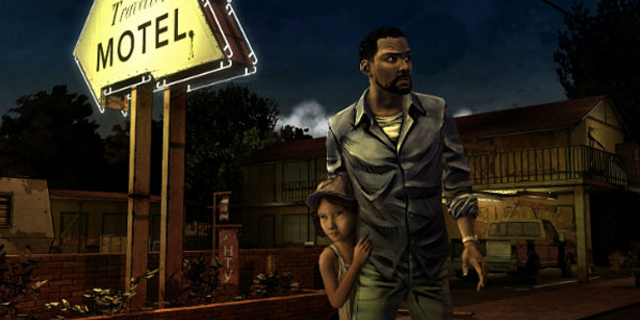
Lee is a character whose past is mysterious from the beginning, but what you choose to reveal to certain characters paints a picture of his past from the perspective of someone who simply wants to see him survive. You don’t do this because you just want to finish the game, you do it because you gradually begin to care about Lee, Clementine, and the many other characters they meet along the way.
Lee’s final moments may be almost identical for a large portion of players, but how you make those final choices says a lot. You may choose to decide based on how you view Lee as a character up to that point, or simply how to feel it would impact those characters in the future of this world (despite having no idea what might happen to them after the credits roll). You make these decisions not because you want to see the good ending or the bad ending; you make them because you care.
And sure, you might not care. By the end of the game, you might just be playing it to see how it ends, not really having any attachment to the characters or the story. By that point, for you, the game has failed its ultimate goal. And not everyone will connect with it the same way, like any story no matter the medium it’s being told in. But that’s not a fundamental failing of the game’s choice system, that’s simply your inability to connect with the story being told. Those complaints lie elsewhere, not with the choices at hand. Whether those choices did create many potential endings, it wouldn’t have changed your mind about the fundamentals that hold it all together.
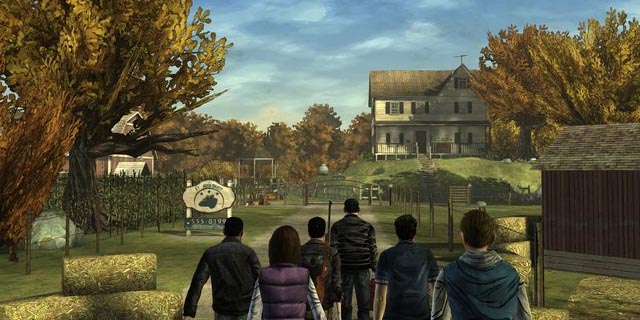
You can fault the game for many things, but if it does anything, it absolutely respects and understands player agency in a way I wish more games would. If you find it disrespectful that your specific interactions (or combinations of interactions) with characters and the world didn’t culminate into a conclusion that revisited every choice you made, then again, the point has been lost on you. However, it handles choice knowing full well that, despite everything that happens, you will remember those decisions and how you feel about the characters involved in them. Characters will remember what you did, and even if that only means something in the moment and not in the grand scheme of things, those moments are what make The Walking Dead so special.
Let’s talk about Mass Effect 3. Without delving into spoilers or giving my personal take on the ending, one of the problems many fans had with it is how it failed to incorporate all of your choices from everything leading up to those final moments into the conclusion. Whether or not you agree, or have different problems with the ending, it’s safe to say that folks at BioWare did set themselves up for this. From the beginning, the Mass Effect series was going to make your choices matter from the first decisions to the last and demonstrate how they would carry over from game to game.
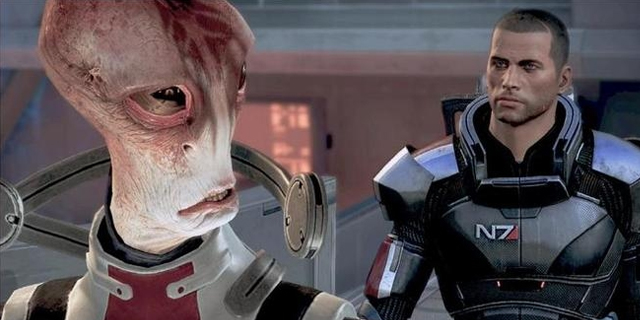
I would argue that, for the most part, they lived up to that promise. Not every decision had an impact, and I wouldn’t be surprised if most people just picked blue or red based on their character and not the choices themselves, but it all worked remarkably well across all three games. This was a different approach to moral choices than The Walking Dead, and one that set up different expectations from the start that led to the backlash against ME3’s finale.
Telltale did say your choices would carry over, and they did, but from the start the game was never set up as something that would provide multiple endings. It seemed to have a clear beginning, middle and end, and that became quite clear from the start. I didn’t mind; I found the story to be gripping and the choices given to me to be compelling for entirely different reasons than Mass Effect. Again, it had a goal and it accomplished that, even if the expectations for a game centered on choices may have been different.
All of my decisions throughout all five episodes of The Walking Dead mattered. They gave me a better sense of the world I was dealing with, the people I chose to accompany and Lee as a character. They weren’t me simply deciding I wanted a specific version of Lee, they lead me to discovering Lee how I wanted to see him. And, as a result, those final moments were different.
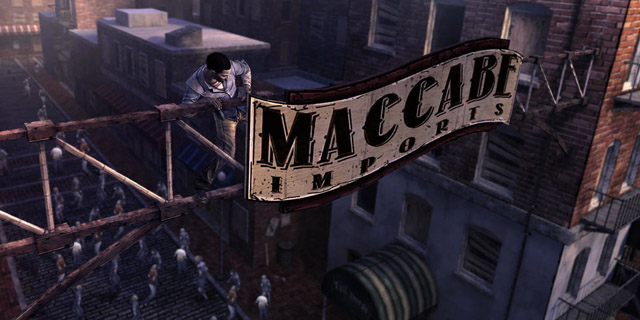
Lee’s choices at the end reflected everything that led up to it, even if many players reached the same structural conclusion. It wasn’t about rewarding players with an ending that was different than everyone else’s, it was about providing them a compelling story that demonstrated exactly how to handle moral decisions without compromising what the developer set out to do.
Most importantly of all, it managed to provide an adventure that gave the player agency over the journey, not the destination.



















